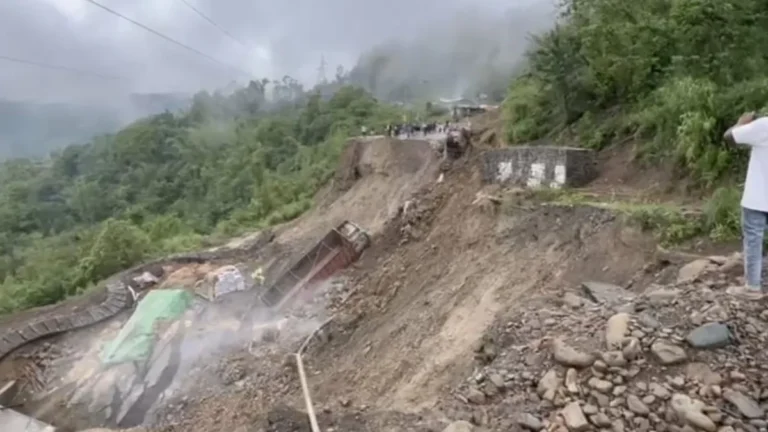India’s Winter Session of Parliament Begins November 25: What to Expect
Quick Summary
India’s Winter Session of Parliament is set to start on November 25 and will focus on key issues such as economic reforms, social welfare, and national security. As the final session before the upcoming elections, it could be pivotal for shaping public policy and the political landscape.
Full Article
Introduction
The Winter Session of Parliament is more than just a routine legislative meeting—it’s a platform where critical issues and policies come under scrutiny, shaping the nation’s trajectory for the coming months. This year, the session is packed with urgency, given the political stakes with national elections around the corner. For voters, this session is about understanding what lies ahead, and for policymakers, it’s a chance to make their case and refine policies before election season.
But what’s on the docket, and why is this session especially significant? Let’s dive into the details of what we can expect from this Winter Session of Parliament.
What Makes the Winter Session Special?
The Winter Session traditionally serves as a platform for addressing pressing issues and finishing up business that didn’t pass in previous sessions. With the current government aiming to implement impactful reforms before the elections, this session will likely witness a surge in proposed legislation. From economic policies to social initiatives, there’s a lot on the table, and lawmakers are likely to be locked in debates that could shape India’s immediate future.
Key Focus Areas for This Session
As Parliament convenes on November 25, several high-priority areas are expected to lead the discussions:
- Economic Reforms to Boost Growth
- Context and Need for Change
India’s economy has shown resilience in the face of global headwinds, but the road to recovery is still ongoing. Economic reforms are expected to be high on the agenda, with new policies aimed at enhancing investment opportunities, stimulating job creation, and controlling inflation. - Possible Policies and Reforms
Tax incentives, labor law adjustments, and financial market regulations could all be up for discussion. Policymakers will look at ways to make India more competitive globally while providing relief to domestic industries and small businesses still recovering from the economic downturn.
- Context and Need for Change
- Social Welfare and Inclusion Programs
- Rural Development
Rural development is often a highlight during election years, and this session could bring new or updated welfare schemes. Agriculture support policies, rural healthcare, and job creation schemes in rural areas are anticipated to make the list of discussion topics. - Healthcare and Education
Social programs supporting healthcare and education might be pushed forward, especially given the need for improved infrastructure in these sectors. Expanding healthcare access and increasing educational outreach could be key focuses, aiming to build a more resilient society.
- Rural Development
- National Security and Defense Policies
- Why Security Matters This Session
With international relations and regional security becoming increasingly complex, this session will likely include discussions on national security strategies. This may include legislation surrounding cybersecurity, intelligence, and military modernization. - Defense Modernization and Preparedness
Measures to enhance India’s defense capabilities are likely to be on the agenda. Investments in defense technology, infrastructure, and strategic partnerships may also receive attention.
- Why Security Matters This Session
Political Dynamics and the Opposition’s Role
With upcoming elections, this session will also see a considerable amount of political maneuvering. The opposition is likely to hold the government accountable for policies related to employment, inflation, and governance, making it a highly charged environment.
Expect debates that not only tackle legislative issues but also showcase the distinct policy differences between the ruling government and the opposition. This dynamic will bring more transparency to the legislative process, helping voters understand each party’s stance.
Bills Likely to be Introduced
Some key legislative proposals that might come up in this session include:
- Labor Law Reforms
These reforms could address worker rights, wages, and safety standards, aiming to improve conditions for the vast workforce, especially in informal sectors. - Tax Reforms
Streamlining taxes to reduce complexities for businesses could be on the agenda, possibly easing GST processes and other taxation laws. - Education Bills
Enhancements in digital education and curriculum reforms are anticipated, aimed at closing the gap in access to quality education across regions. - Health Sector Regulations
Health policies may focus on affordable healthcare access, improving the infrastructure of public health systems, and regulating pharmaceutical prices.
Conclusion: Why This Session Matters
This Winter Session serves as a prelude to the next election year, holding weighty implications for both the government and the electorate. While legislative advancements are always the core focus, this session will also indirectly function as a campaign stage for the government and opposition alike.
As citizens, it’s essential to stay informed on these developments, as the outcomes will likely impact everyday life. From employment opportunities to economic policies that affect daily expenses, the decisions made in this session will have a lasting impact. So, keep an eye on this session for some of the year’s most influential debates and resolutions.
FAQs
- When does the Winter Session of Parliament begin?
The session is set to commence on November 25 and will continue through December. - What are the main topics expected in this session?
Economic reforms, social welfare, national security, and healthcare are likely key focus areas. - Why is this session particularly important?
As the last session before national elections, it will heavily influence public opinion and lay the groundwork for the upcoming election campaigns. - Will there be debates with the opposition?
Yes, the opposition is expected to challenge the government on key policies, leading to some robust debates. - How will this session impact everyday citizens?
Policies related to inflation, healthcare, and employment could affect daily life, making this session particularly relevant for all citizens.





